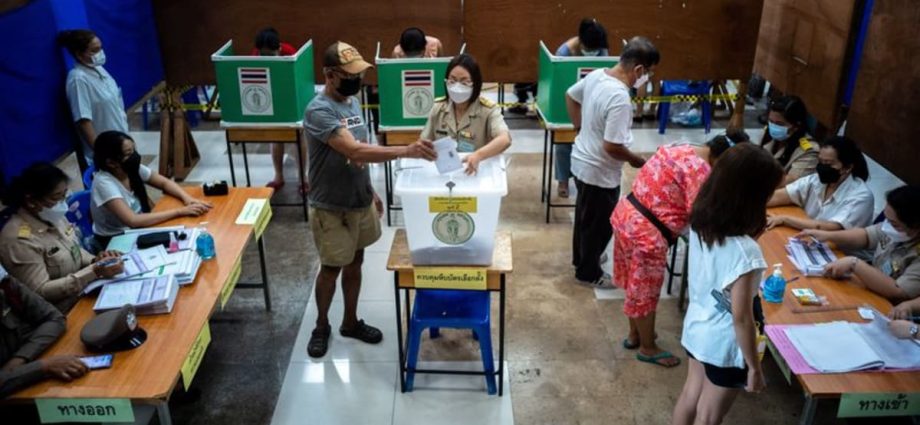
ELECTION SCENARIOS
The key factor determining post-election scenarios will be how well former prime minister Thaksin Shinawatra’s Pheu Thai party performs. Thaksin has lived in self-imposed exile since 2008, but remains the driving force behind the party, now ably led by his daughter Paetongtarn. Paetongtarn has said her goal is to capture 310 seats. Such a landslide would allow Pheu Thai to take the prime ministership and dominate a coalition with smaller parties.
Even so, Pheu Thai will likely fall short of this high bar, in part because the progressive Move Forward party will split the anti-establishment vote. Move Forward’s predecessor party, Future Forward, won 80 seats in 2019, but may perform less well due to subsequent electoral changes, despite polling strongly. Move Forward has the most distinctive and ambitious policy agenda of any party in the election, seeking to reform Thailand’s constitution, end military conscription and reform the lese-majeste law.
Most analysts point to a coalition government involving elements from both Pheu Thai and conservative and parties as the most likely electoral outcome. General Prawit Wongsuwan, Prayut’s long-time deputy, is positioning himself as the candidate of political reconciliation and openly mooting the idea of a coalition with Pheu Thai. A tie-up between opposing political forces may seem odd, but in the pragmatic world of Thai politics, any deal is possible.
Pheu Thai is cagey about these prospects, fearful that talk of allying with conservative parties could damage its electoral prospects. And Thaksin probably still has majoritarian instincts. While he may be open to a pragmatic deal, he has proved incautious in the past, and would likely seize on any window of opportunity to put Pheu Thai back in the driving seat, even if doing so risked political conflict.

